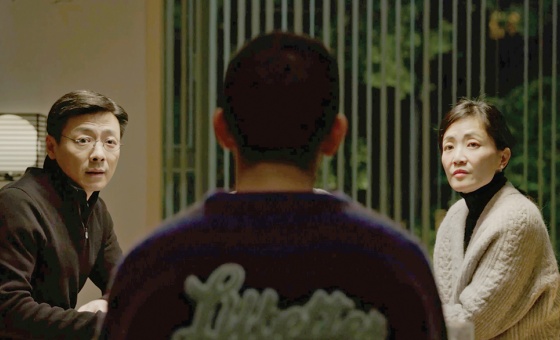This is the last article you can read this month
You can read more article this month
You can read more articles this month
Sorry your limit is up for this month
Reset on:
Please help support the Morning Star by subscribing here
FRACTURE (Granta, £14.99) is Argentinean writer Andres Neuman’s fifth book translated into English and his first novel since his acclaimed Talking To Ourselves, published in 2014.
A tale of love, personal tragedies and loss that spans many decades and continents, it tells the story of Yoshie Watanabe, survivor of the Nagasaki and Hiroshima nuclear disasters.
Taking the reader on a fascinating journey from the busy streets of Tokyo and bohemian Paris to New York’s Harlem, Buenos Aires, Madrid and back to Japan, it’s interspersed with Watanabe’s personal experiences after returning to Japan in 2011 following a long career abroad as an electronics executive, along with his memories of his previous female partners.
Watanabe becomes obsessed with the collective memory of disasters and the legacy they leave on individual and shared consciousnesses, described by one of his partners as “the way that countries forget the pain they have suffered or caused, the way that all genocides end up resembling one another, plagiarising one another, both here and in their antipode.”
An ambitious book, written with flair, wit and elegance, it’s a masterful tale of personal and communal catastrophes that even so bring a sense of hope in uncertain times.
Argentinian writer Samanta Schewblin’s Little Eyes (Oneworld, £14.99) explores some of the most disturbing aspects of the new technologies, social media and the Big Brother culture in a techno dystopia.
It centres around sinister “Kentuki” toys, electronic pets that function as robots. These can be purchased by owners to live with them but on the other side of a Kentuki’s camera eyes there is always a “dweller” — a person who purchases an activation account that allows them to control the pet.
The premise is simple but disturbing. Nobody can choose which Kentuki they are assigned, thereby creating a social network of pets in homes all over the world. The novel’s protagonists recount their complex and at times confusing relationship with technology, where voyeurism, solitude, vigilance, intimacy and desire abounds.
A dark story, beautifully translated by Megan McDowell, it leaves the reader in a world from which there is no escape, as it questions our growing complicity in social media and neocapitalist technologies.
A tertulia is the Spanish and Latin American concept of a social gathering with literary or artistic overtones, where people discuss debate all sort of issues and it can also mean an informal meeting where the talk is of current affairs.
Vincent Toro’s Tertulia (Penguin, £14.99) invites the reader into a poetry salon to examine and discuss issues such as immigration, social injustice in the US and racism against Latinx people there, as well as the complexities and violence of colonialism and race relations in North and South America.
In My Commonwealth, a poem after Ryuichi Tamura’s My Imperialism, Toro writes: “A lone mamey/blooms from the tower/of flaming wheels./My Commonwealth reaches/to pluck it. My Commonwealth/starves beneath apocryphal winters./ I’ve got a dime, but no telephone./While my Commonwealth is a satellite tumbling into the Pacific.”
His is a poetry of experimentation, musicality and political denouncement, a kaleidoscopic world full of powerful ideas that reveal one of the most exciting and inventive Latinx poets writing today.
Alberto Rios, born in Nogales, Arizona, and who has written from that geographic and sociological perspective through more than five decades, is considered by many as one of the godfathers and most important voices of the Latinx poetry experience in the US.
Not Go Away Is My Name (Copper Canyon Press, £13) is his 16th collection and one of his most personal to date. It takes the reader on a memorable journey of family memories, stories of the Sonoran desert and the experiences of everyday life and objects.
A precise observer of life, Rios often employs language that is distinctively straightforward, as in Border Boy, where the poet recounts his childhood living near the US-Mexican border:
“I grew up on the border and though I left/I have brought it with me wherever I’ve gone./Its line guides me, this long, winding thread of memory./The border wasn’t as big as they say—/It fits neatly behind my eyes and between my ears—/It guides me still, I know, but it is not a compass./It is not a place out there but a place in here./I catch on its barbed wire in both places.”
Rios’s latest collection is a moving and powerful account of rare quality that speaks of personal and communal love, of ongoing racial and social injustices in the US and also of the inner beauty of the simplest things in life.










